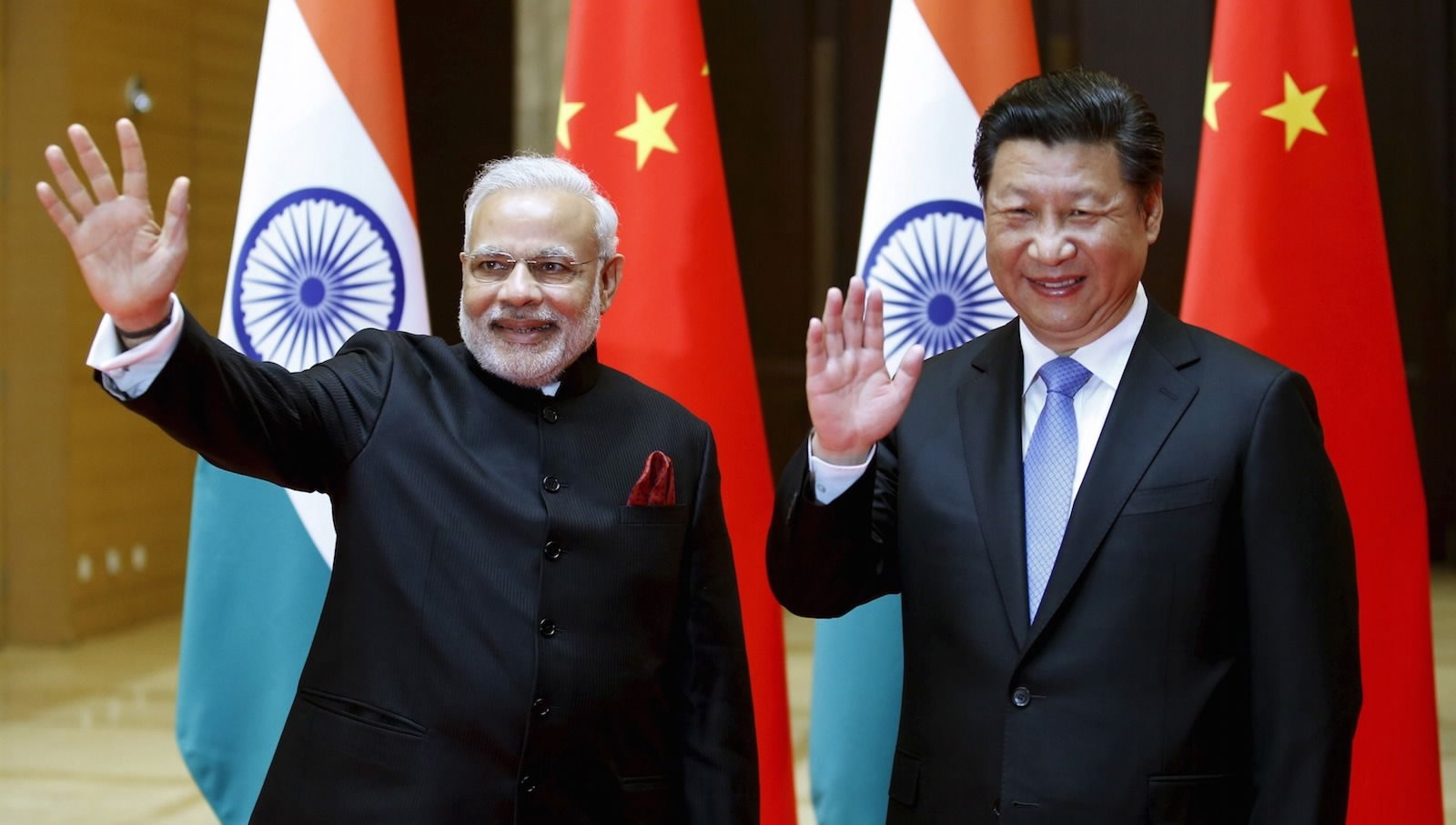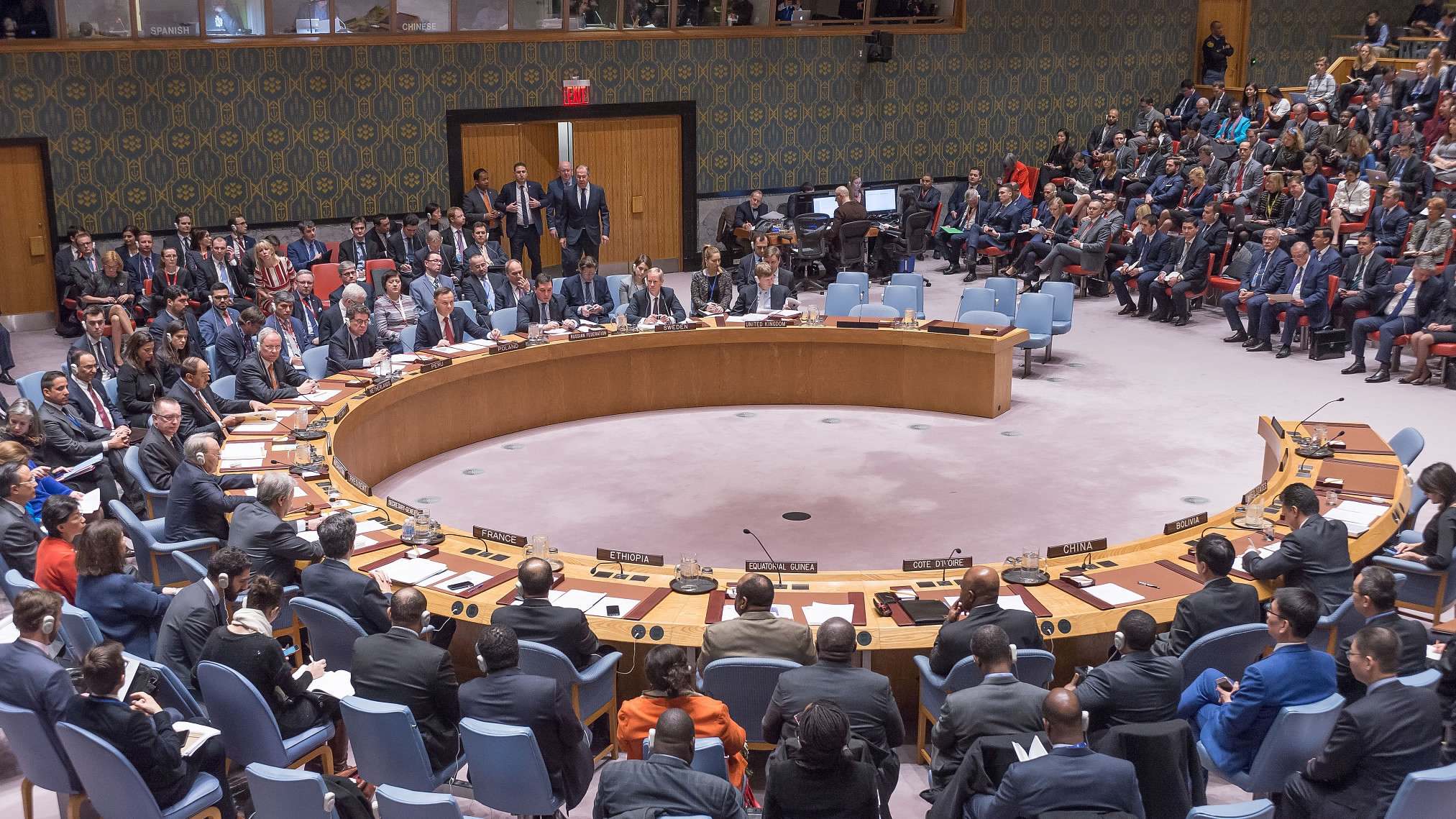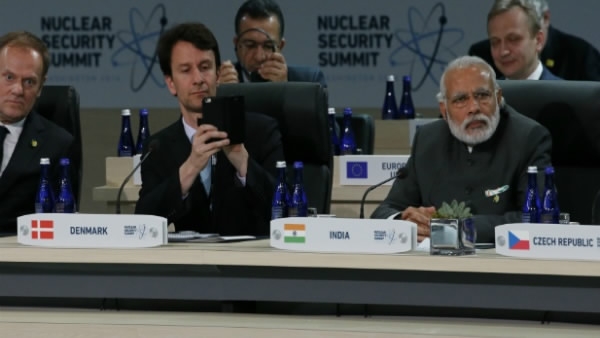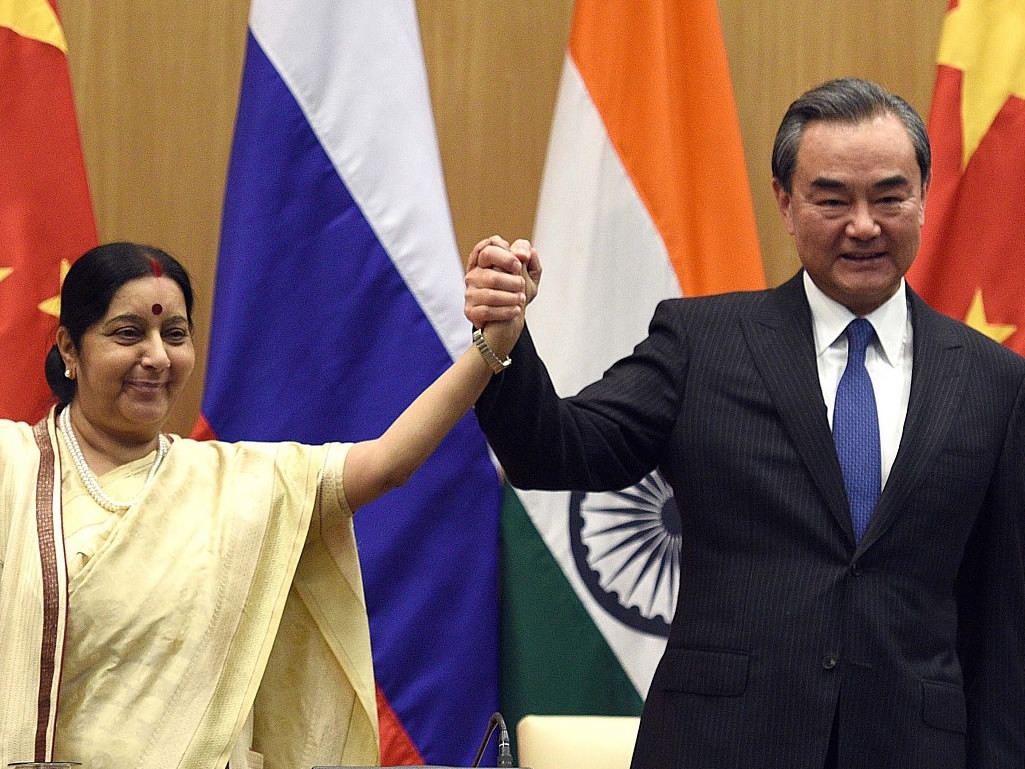
World
18:17, 11-Apr-2018
China, India discuss disarmament, non-proliferation ahead of NSG meet
By Abhishek G Bhaya

China and India on Tuesday held crucial talks on disarmament and non-proliferation in Beijing amid signs of growing bilateral engagements following last year’s border standoff. The talks assume significance ahead of the plenary session later this year of the Nuclear Suppliers Group (NSG), where India is seeking an entry and needs the support of China, a key member of the NSG.
“The fifth edition of the India-China Disarmament and Non-Proliferation Dialogue was held today (April 10) in Beijing. The Indian delegation was led by Dr Pankaj Sharma, Joint Secretary (Disarmament and International Security Affairs) in the Ministry of External Affairs while the Chinese delegation was led by Mr Wang Qun, Director General of Department of Arms Control at the Ministry of Foreign Affairs of China,” a statement from the Indian Embassy in Beijing said.
“The delegations exchanged views on various topics of mutual interest, including, developments related to disarmament and non-proliferation at multilateral forums, nuclear issues, role of science and technology in the context of international security and disarmament as well as outer space,” read the statement indicating that the issue of India’s NSG bid would have been discussed at the meeting.
'Not a bilateral issue'

A general view of the United Nations Security Council during a meeting on non-proliferation of weapons of mass destruction at UN Headquarters in New York, US, on January 18, 2018. /VCG Photo
A general view of the United Nations Security Council during a meeting on non-proliferation of weapons of mass destruction at UN Headquarters in New York, US, on January 18, 2018. /VCG Photo
China and India have divergent views on New Delhi’s admission to the elite group 48 nations that controls trade in sophisticated civil nuclear technology. India was granted an NSG waiver in 2008 that allows it to engage in nuclear commerce but deprives it of a vote in the organization’s decision making.
China had maintained that new members should be signatories of the Nuclear Non-Proliferation Treaty (NPT), which India hasn’t signed. This has made India's entry into the group difficult as the NSG works on the principle of consensus.
Ahead of the last NSG plenary in the Swiss capital of Bern in June last year, China’s Foreign Ministry Spokesman Geng Shuang asserted that "as for non-NPT countries being admitted to the group, I can tell you there is no change to China's position."
"I want to point out that the NSG has clear rules on admission of new members and the Seoul plenary [in June 2016] made clear mandates on how to deal with this issue. With these rules and mandates, we need to act as they dictate," he added.

Indian Prime Minister Narenda Modi (right) attends the second plenary session of the Nuclear Security Group Summit in Washington, US, April 1, 2016. /Reuters Photo
Indian Prime Minister Narenda Modi (right) attends the second plenary session of the Nuclear Security Group Summit in Washington, US, April 1, 2016. /Reuters Photo
While India has complained about China for not supporting its bid, Beijing, on the other hand, has maintained that the matter is not a bilateral issue but involves the international non-proliferation regime. After India’s application for entry into the elite group, Pakistan too had applied for membership. Both the South Asian nuclear neighbors have refused to sign the NPT.
“Regarding India's accession to the NSG and the listing application to UN Committee 1267, they are not bilateral issues between China and India. India's application to join the NSG is an issue concerning the sanctity of the international non-proliferation regime with NPT as a bedrock, on which China takes a fairly responsible attitude,” China’s Foreign Ministry Spokesperson Hua Chunying said last year.
After a series of meetings, China has suggested a two-step approach which stipulates that the NSG members first need to arrive at a set of principles for the admission of non-NPT countries into the NSG and then move forward with discussions of specific cases.
“We call for a two-step approach that starts with a non-discriminatory solution applicable to all non-NPT countries followed by case-by-case discussions on the applications of non-NPT countries. Targeting no particular country, this approach aims to maintain the sanctity of the international non-proliferation regime with the NPT as the cornerstone,” Hua said, asserting that China’s position is not aimed at India.
'Greater common interests'

India's External Affairs Minister Sushma Swaraj (left) and Chinese Foreign Minister Wang Yi at a press conference in New Delhi, India, on December 11, 2017. /VCG Photo
India's External Affairs Minister Sushma Swaraj (left) and Chinese Foreign Minister Wang Yi at a press conference in New Delhi, India, on December 11, 2017. /VCG Photo
The foreign ministry spokesperson has also expressed hope that the issue “should not overshadow the mutual trust and cooperation between China and India,” urging that “both parties should be able to see greater common interests in a wide spectrum of areas beyond these specific differences, and make joint efforts to maintain friendly negotiation and communication and seek proper settlement.”
The Indian Embassy statement about Tuesday’s meeting echoed the same sentiment. “Both sides underlined the importance of the bilateral dialogue as an important mechanism between the two countries for consultations on important issues,” it said, adding that the sixth round of consultations will be held in New Delhi “at a mutually convenient time”.
There has been a significant spurt in the number of top-level bilateral visits amid new optimism on both sides to improve ties after last summer’s 73-day Donglang border standoff.
China’s Foreign Minister Wang Yi and State Councilor Yang Jiechi visited New Delhi in separate trips, which were followed by India’s Foreign Secretary Vijay Gokhale’s visit to Beijing.
Many top Indian officials and ministers, including National Security Advisor Ajit Doval, External Affairs Minister Sushma Swaraj and Defence Minister Nirmala Sitharaman are expected to visit China this month.
Indian Prime Minister Narendra Modi is expected to take part in the Shanghai Cooperation Organization (SCO) summit in China’s Qingdao City this June.
Even remarks made by both sides in recent months point to a thaw in bilateral relations and a serious intention towards building mutual trust.
Last month on the sidelines of the 13th National People’s Congress in Beijing, Wang Yi famously said: “The Chinese dragon and Indian elephant must not fight each other but dance together. If China and India are united, one plus one will equal not only two, but also 11."
The Indian Ambassador to China Gautam Bambawale responded, in what were described as “positive remarks” by Hua, saying New Delhi isn’t threatened by Beijing’s rise but considers its northern neighbor as a “partner in progress and development” and looks to learn from its tremendous growth story.
[Cover Photo: Indian Prime Minister Narendra Modi (leftand Chinese President Xi Jinping. /Reuters Photo]
1km

SITEMAP
Copyright © 2018 CGTN. Beijing ICP prepared NO.16065310-3
Copyright © 2018 CGTN. Beijing ICP prepared NO.16065310-3